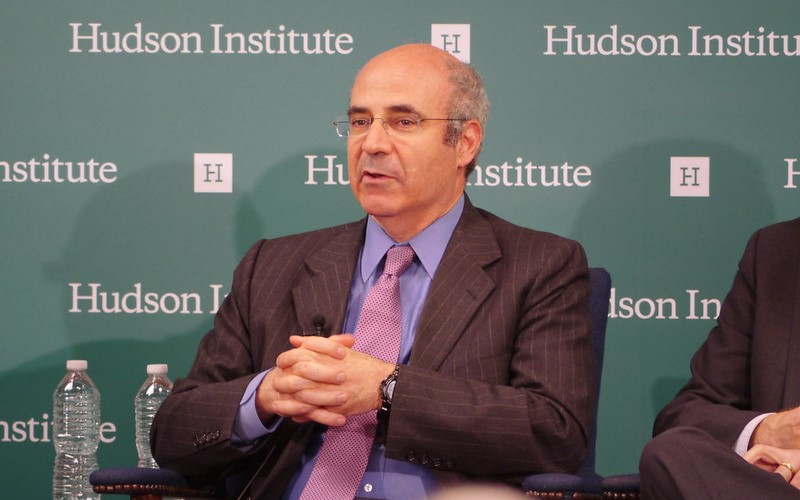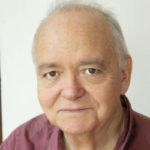
The law gives the foreign minister the power to punish foreigners without going to court. The accused are given no chance to provide a defence.
Why is Sergei Magnitsky’s name in the title of an Australian law passed on December 2 called the Autonomous Sanctions Amendment (Magnitsky-style and other Thematic Sanctions) Act 2021?
The answer is that the Morrison government and the Labor opposition were strongly influenced by an American hedge fund manager Bill Browder who had employed Magnitsky’s firm as a tax accountant and auditor in Moscow. Browder had made a lot of money in Russia after public assets were sold cheaply to local and foreign oligarchs after the fall of communism. Browder left Moscow where he had been living amid conflicting claims over tax avoidance and other allegations.
The second reading speech on the Australian bill said that as a result of Browder’s advocacy, the US Congress in 2012 passed the Magnitsky Act, banning travel and the freezing assets of the Russian officials had [allegedly] been responsible for Magnitsky’s death in custody on November 16, 2009.
The German magazine Der Spiegel published a detailed article “Questions cloud story behind US sanctions” on November 20, 2019. It challenged some of Browder’s core claims about what happened to Magnitsky. Browder complained to the German Press Council that the article contained “serious inaccuracies” and “journalistic malpractice”. In 2020, the council rejected the complaint, saying it “could not find any violations of journalistic principles.”
The British High Court also made findings that don’t support some of Browder’s key claims. Browder, for example, accused a police officer investigating financial allegations, Pavel Karpov, of working to have Magnitsky arrested and killed. Karpov filed a defamation suit against Browder that the British High Court heard in 2013. Judge Peregrine Simon ruled that Britain had no jurisdiction over the matter. In his written findings, however, Simon said Karpov had achieved “a measure of vindication from the view I have expressed” that Browder was “not in a position to justify the allegations that Karpov caused, or was party to, the torture and death of Magnitsky or would continue to commit, or be a party to covering up crimes”.
Defence counsel then argued on Browder’s behalf that it was not alleging Karpov “personally took part in the ill treatment and/or torture or killing of Magnitsky.” The defendants also “expressly conceded” Karpov was not involved in what’s called the Rengaz fraud. Simon pointed out that his findings will have no impact on the US Congress which listed Karpov for sanctioning under its Magnitsky Act along with 15 other Russians in April 2013.
The European Court of Human Rights on August 27, 2019, found Magnitsky’s arrest “was not without cause as it was based on a reasonable suspicion of his having committed a criminal offence. The evidence against him, including witness testimony, had been enough to satisfy an objective observer that he might have committed the offence in question.” However, the court found that the extension of his detention, culminating in his death after 11 months, was not justified.
The judges did not say he had being murdered by Karpov or anyone else, as Browder had claimed. But the court did find Russian authorities had deprived Magnitsky of important medical care and failed to comply with their duty to protect his life while detained. It said he suffered injuries that could “arguably” have been caused by his being beaten by prison officers. The court ruled the Russian authorities should pay Magnitsky’s wife and mother 34,000 euros jointly.
The new Australian law should have no place in a liberal democracy. It gives the foreign minister the power to punish foreigners without going to a court. The minister can impose sanctions that freeze their assets, ban travel and effectively deny them access to financial services. The alleged culprits are given no chance to provide a defence before being found guilty.
The crimes cover malicious cyber attacks, serious corruption and serious violation of human rights. No other country includes cyber attacks in their sanctioning powers. Proving who is the real perpetrator of a cyber attack is almost impossible since leaked CIA documents in 2017 showed it can make it look like an attack comes from some other group when it really comes from the CIA. As a result, Clinton Fernandes, a professor of cyber studies at the University of New South Wales, said: “In the absence of a credible international institution that can provide checks and verification all we have is one country blaming another and vice versa.”
In 2020, the Parliament’s Joint Standing Committee on Foreign Affairs, Defence and Trade recommended that an independent body be established to advise the foreign minister or who should be sanctioned. The government rejected this, without an outcry from opposition politicians. This left the law with an inherent bias after the government stated that it is a “foreign policy tool”.
This means, for example, sanctions won’t apply to India where corruption is rife but barely exists in China where individuals will almost certainly be sanctioned for other offences. Serious human rights violations occur in both countries as well as Australia. The US will not be targeted, despite a history of torturing suspected terrorists in secret jails for far longer than Magnitsky suffered. This does not diminish the suffering he endured, but a genuinely independent prosecution process would not be confined to countries who are allies.
Including an individual’s name in an act’s title is a rare occurrence in Australia, even rarer in the case of someone as contentious as Magnitsky. His name should be removed from the act, which should be scrapped unless it is changed to reflect traditional Australian legal rights. Until that happens, the law will retain authoritarian powers that have no place in a liberal democracy.




